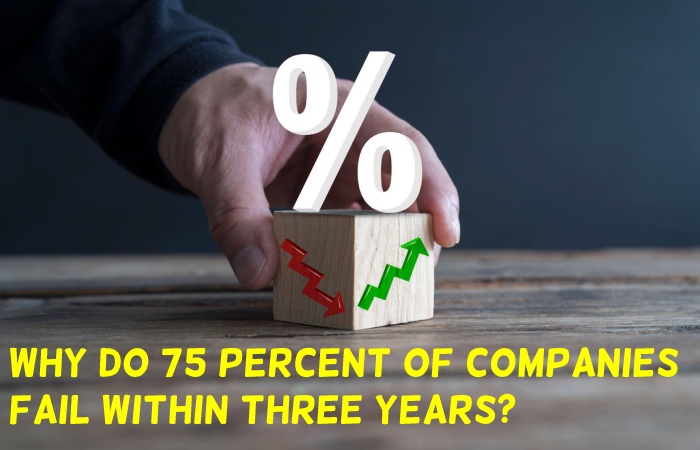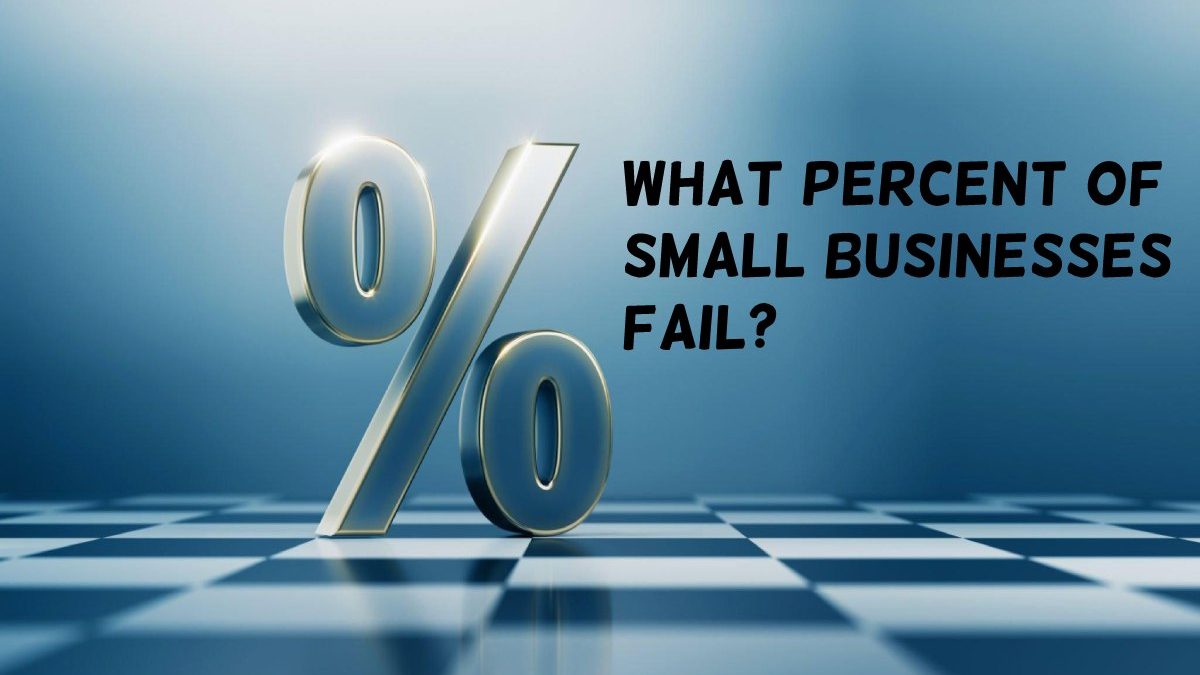Approximately 20 per cent of small businesses fail within the first year, According to data from the Bureau of Labor Statistics, as reported by Funders. At the end of the second year, 30 per cent of the small businesses will have failed. By the end of the 5th year, around half will have failed. And by the end of the decade, only 30 per cent of businesses will continue, a 70 per cent failure rate.
Why is the Failure Percent Important?
Some people use small businesses fail statistics as a tool for discouragement; they want to warn would-be entrepreneurs about the dangers of starting a business. But there is a more helpful way to study and learn from statistics like these.
First, the failure rate gives an idea of how and when companies tend to fail. Only 20% fail within the first year, but 50% fail within the first five years. In other words, another 30% of companies will die between years 2 and 5, or about 7.5% of the original number per year. Suppose we assume some “death from natural causes” and take that 7.5% number as the predictable failure rate. So we can think that about 12.5 per cent of companies fail in the first year due to a lack of success: preparation. You are in good shape when you are more prepared than the last eighth of entrepreneurs.
Why is the Failure Percent Overestimated?
I also want to acknowledge that they often inflate when bug stats misrepresent. In other words, people tend to exaggerate the failure rate of small businesses. It can be a conservative way of lowering expectations or increasing the desire to discourage potential employers. However, we must beware of people who confidently speak a trivial “truth” about owning a business.
Small businesses often fail, giving you a 50/50 chance of surviving the last year. But it’s important to consider statistics for what they are, understand their context, and not allow unfair ways to stop you from further expanding your business.
Why do 75 Percent of Companies Fail within Three Years?

Commitment
You should not suffer from any of the above points when you believe in your business idea more than anything else and are genuinely committed to it.
You will stay your course, avoiding constantly changing to new ideas, and you will be willing to do what you do not know how to do. Then, when a challenge hits you in the face, the true entrepreneur in you will rise and move on!
Suppose you are suffering because you see how your business is failing little by little every day. Look inside yourself and ask yourself if you are doing everything possible to save it (and you are committed to it). Or if you are avoiding doing what is necessary because of your fear.
Differentiation
As I said before, according to Michael Ames, competition is another reason for failure. However, I think the competition shows an actual demand for your product or service.
However, the question is whether you can differentiate yourself from this competition.
Don’t try to differentiate yourself based on price; By doing that, you end up becoming a raw material where as soon as a second business enters your niche. It will do so at even lower prices, and you are out.
It would help if you focused on a direction where you are sure you will do whatever it takes to be different from others in your market.
For example, don’t say you’re just a cleaning company, a chiropractor, or a fitness trainer. There are already many others who claim to do it precisely to be unique and different.
Lack of a marketing strategy
Many entrepreneurs enthusiastically start their projects, measuring to the millimetre how they will do this or that, analysing all possible scenarios.
And you know you can’t just pray and wait for the results of any project. Especially one that involves a business. You have to act and have a plan.
That’s why you should work on creating a complete system to grow a business successfully. And that means attracting customers (or traffic if your business is online).
While this is only a third of the work, you will need to convert them into potential customers and build relationships with them so they can be your advertisers through word-of-mouth marketing.
Marketing isn’t difficult, but you need to put in the effort to develop all the different marketing strategies available to succeed in your business.
Prioritisation
Focusing on your priorities is why most companies thrive versus those that don’t.
If you ask me why businesses fail, I’ll tell you it’s because many owners work hard at their businesses but don’t work smart.
Do you struggle to drive your business forward daily but not get the desired results? Do you focus 80% (or more) of your time on tasks that generate income?
Those who are successful in business know their priorities and focus on them. So keep an eye on your activities and ensure you are not only busy but also productive.
Conclusion
If you are wondering why your business is sinking a little more every day, make sure that:
You are focused on priorities that produce income and not just being busy with something. So you have a good marketing plan for your business. You show your uniqueness or originality instead of just blending in with the competition. And finally, you are committed and do not hesitate to do whatever it takes to succeed.
Related posts
Featured Posts
SEO Books – 10 Best SEO Books
A significant first step is to look for the best SEO books to enter the world of SEO if you…
Work From Home – Advantages, Disadvantages, and More
Working from home allows you to manage both home and work at the same time. Working from home is especially…



